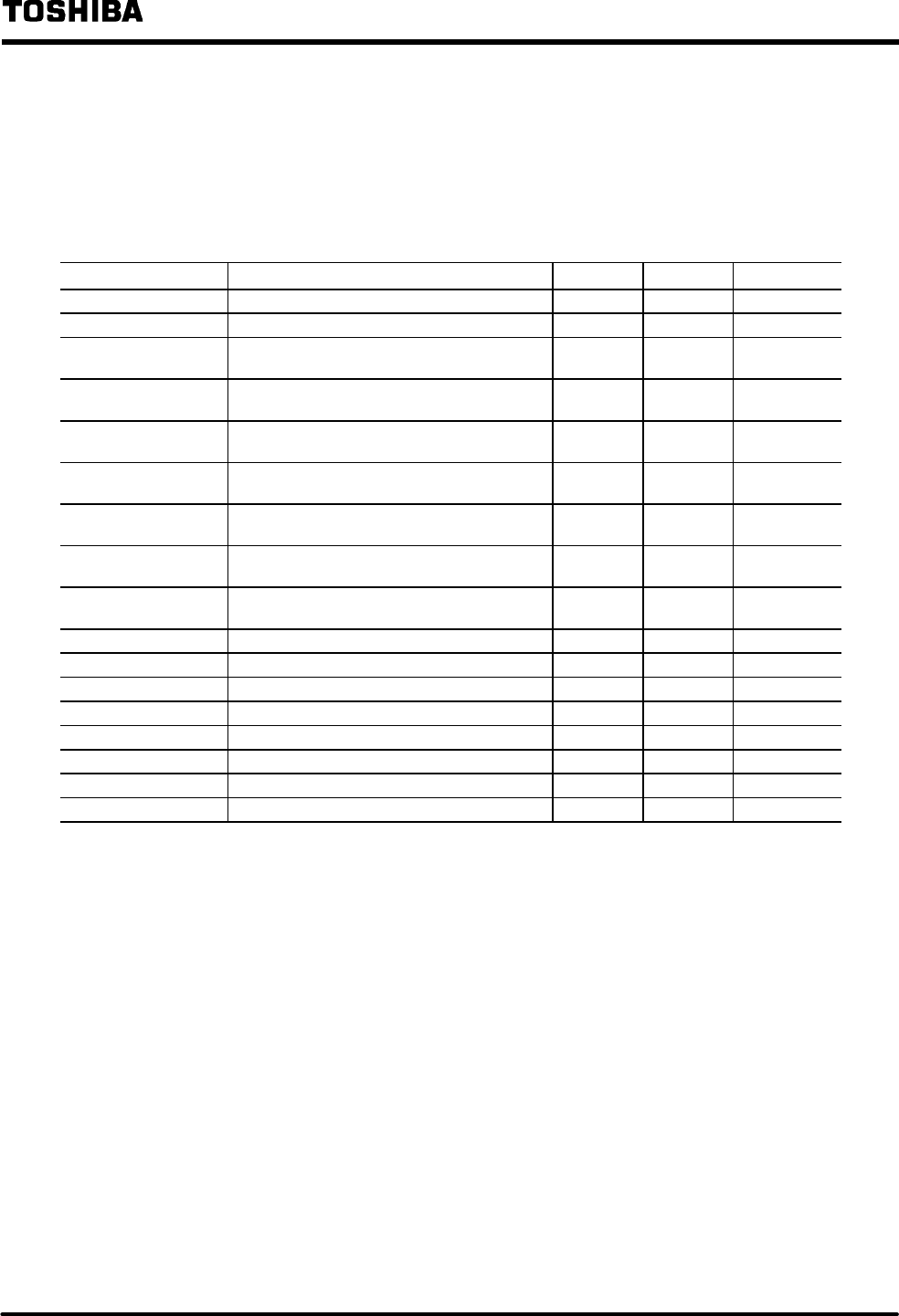
171
6 F 3 B 0 3 6 2
Appendix 2 Request Code Table
This table lists the request codes (CMD) used with SEND/RECV instructions sent to the Ethernet
Port. Refer to the section/item indicated in the reference column in the table for detailed
explanations of the request codes.
Table A.2 Instructions (Requests) to the Ethernet Port
Request Function Instruction CMD/Class Reference
Reset request Resets the Ethernet Port. SEND 0011H/(1) Section 4.3
Parameter setup request Sets up the Ethernet Port parameters. SEND 0012H/(1) Section 4.4
request
Sets the operating mode. SEND 0013H/(1) Section 4.5
request
Verifies the existence of another port on the
network.
SEND 0014H/(1) Section 7.3
request
Reads out the Ethernet Port RAS information. RECV 0015H/(1) Section 7.6
Time set request
Sets the Ethernet Port internal clock
Time information for event trace
SEND 0018H/(1) Section 7.5
(PC link function)
Reads register data from remote T2N into registers
in the local T2N.
RECV 0021H/(2) Section 5.4
(PC link function)
Writes register data from the local T2N to registers
in remote T2N.
SEND 0021H/(2) Section 5.3
request
Performs a loopback test with another Ethernet
Port on the network.
SEND 000FH/(2) Section 7.4
UDP open request Opens a UDP socket. SEND 0031H/(3) Section 6.4 (1)
UDP send request Transmits data from an open UDP socket. SEND 0032H/(3) Section 6.4 (2)
UDP receive request Reads out data received by an open UDP socket. RECV 0033H/(3) Section 6.4 (3)
UDP close request Closes (terminates) an open UDP socket. SEND 0034H/(3) Section 6.4 (4)
TCP open request Opens a TCP socket. SEND 0035H/(3) Section 6.4 (5)
TCP send request Transmits data from an open TCP socket. SEND 0037H/(3) Section 6.4 (6)
TCP receive request Reads out data received by an open TCP socket. RECV 0038H/(3) Section 6.4 (7)
TCP close request Closes (terminates) an open TCP socket. SEND 0039H/(3) Section 6.4 (8)
• The request code (CMD) types (1) to (3) have the following meanings.
Class (1) is module control, (2) is PC link protocol transmission, and (3) is socket interface
transmission.
• For a single Ethernet Port, it is not possible to request another class (1) CMD while a class
(1) CMD is executing. This is also true for class (2) CMDs. If such a request is issued, the
status will be transmission port busy, and the request will go to the wait state.
• For a single Ethernet Port, when requesting a class (3) CMD, it is not possible to request
another class (3) command for a socket for which an instruction is executing. If such a request
is issued, the status will be transmission port busy, and the request will go to the wait state.
• There are eight sockets, and each can independently accept and execute a class (3) instruction.
